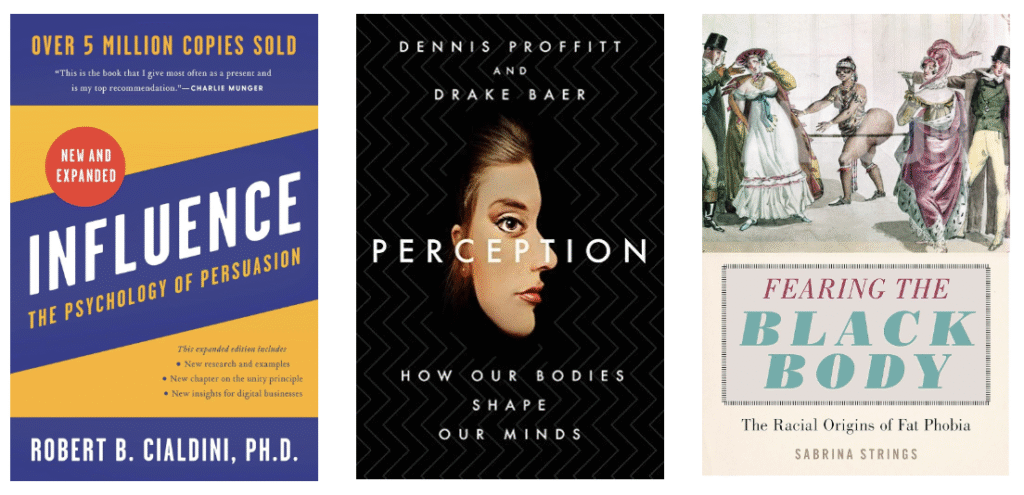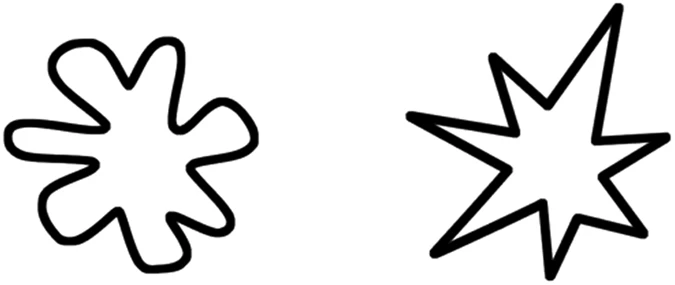TCP011 | ⏰~7min read
Welcome to The Contemporary Polymath Newsletter, where you broaden your horizons, feed your curiosity, and spark new ideas on Thursdays by Naya Moss
📧 In This Issue
- 🧠 How the Halo Effect tricks your brain
- 🥰 Beauty standards as social currency
- ➗ The 125-year math problem finally solved
- 📖 Fearing the Black Body and the roots of fatphobia

👋🏾 Hey there friend,
The inspiration for this week’s issue started with something I heard on a YouTube video. They were talking about interest in hiring someone not because of their resume or qualifications but because of how they looked. The exact words were, “They just looked really smart. They looked like they knew what they were doing.” That impression was made before the person had ever even spoken a word.
When the person finally did speak, their accent and the way they spoke slower, more measured only reinforced that assumption. The way they looked and sounded opened doors for them.
I know the person they were talking about. And yes, they are smart. But it really stuck with me how much was decided about them before any actual skills or knowledge came into play.
It hit me hard because I’m in a very different place right now. I’ve been out of work for months. I’m homeless. And I can’t afford the polished look I used to have the well-groomed, put-together version of myself that I know helped open doors for me in the past, but also made me feel good. I sometimes feel the difference in how people treat me now, although I do my best up upkeep grooming and cleanliness. I feel how much harder it is to be seen as capable, as worthy, when you can’t present yourself the way society expects.
What makes this even more striking for me is that I wasn’t raised to think this way. Growing up in New York especially in the kinds of spaces I grew up in I was never taught to treat someone better or differently because of how they looked, what title they held, or how much money they had. I was always taught to treat the janitor like the CEO, and the CEO like the janitor. That’s something I’ve carried with me my whole life.
So coming across this kind of bias where appearance or status shapes who gets opportunities has been something I’ve had to really study and try to understand. Reading about these social psychology concepts, diving into the history of beauty standards, likability bias, and aestheticism it’s helped me make sense of how differently people think, and are conditioned especially when they come from environments very unlike my own.
That’s what we’re exploring this week.
🌍This Week’s Explorations
Written by Us
Psychology
😇 Sometimes it only takes one good impression a flash of charisma, a little confidence, a certain look and suddenly we believe someone is great at everything. That distortion has a name: the Halo Effect. This mental shortcut shapes way more decisions than we realize, from hiring to dating to everyday trust.
🤫 There’s an unspoken force that shapes how we evaluate others. Research shows we’re more likely to trust, hire, or agree with people we simply like—even when their skills don’t match. This is known as Liking Bias, and it helps explain why looks and charm so often outruns competence.
History
🥰 For centuries, Western beauty ideals have shaped more than just art—they’ve influenced who we trust, favor, and listen to. Aesthetics and Likability are often more tangled than we realize. This post explores how beauty standards became social currency.
Science
🧮 You’ve probably seen those wavy, rippling designs that appear when two patterns overlap just enough to throw your eyes off balance. Known as Moiré Patterns, they aren’t just beautiful optical illusions—they’re central to breakthroughs in quantum materials, photography, and even textile design. Here’s how this phenomenon connects science and art.
🔍 Intriguing Finds
A curated selection of news and discoveries
- Mechanical metamaterials create structures with unusual physical properties
- What 4,000 researchers really think about how AI might improve lives
- A math professor shares a new finding on prime numbers
- High blood sugar weakens memory and reward processing, according to a UNLV study
- Breakthrough in Hilbert’s sixth problem links three major physics theories
📖 Books We Are Reading
Book recs for this week

Influence: The Psychology of Persuasion
Charm, similarity, and flattery aren’t just social niceties—they’re powerful levers that shape decisions, often without us realizing. These forces quietly steer the choices we make every day, influencing how we say yes, who we trust, and what we believe.
Perception: How Our Bodies Shape Our Minds
Beauty asks more of us than admiration—it asks for attention, curiosity, and care. The way we define and recognize beauty, this book suggests, is deeply connected to justice. Learning to truly see may also teach us how to treat one another more ethically.
Fearing the Black Body: The Racial Origins of Fat Phobia
Long before BMI charts and wellness culture, colonial beauty standards tied thinness to whiteness and moral virtue. This history shows how those harmful ideals took root—and why they remain so hard to unlearn today.
The Beauty Bias: The Injustice of Appearance in Life and Law
From hiring decisions to courtroom outcomes, appearance-based discrimination shapes lives in ways we rarely question. The Beauty Bias makes a strong case for why looks shouldn’t dictate the opportunities we’re given—or the respect we receive.
👥 Readers Corner
We are looking to interview some polymaths to feature in our newsletter, if that interest you, hit the button below:
💭 How Inquisitive
🔙 Answer to last week’s question
🧠 What do you call these shapes?

Most people call the shape on the left “Bouba” and the spiky one on the right “Kiki.” This comes from the Bouba-Kiki effect, a psychology experiment showing how we tend to match soft, round sounds like “Bouba” with round shapes, and sharp, harsh sounds like “Kiki” with jagged shapes. It suggests our brains naturally link sound and visual form, shaping how we perceive the world.
⏭️Question for next week
🎵 Can what you hear change what you taste?
🇿🇦 Zinakekele. Yiba nomusa. Ube nosuku, ntambama, noma ubusuku obuhle noma kuphi lapho ukhona!
🇺🇸 Take care. Have a wonderful day, evening, or night wherever you are. Be kind!
Was this forwarded to you? Subscribe here
If you enjoyed this newsletter, a cup of matcha 🍵 serves as fuel!
Best,
Naya

